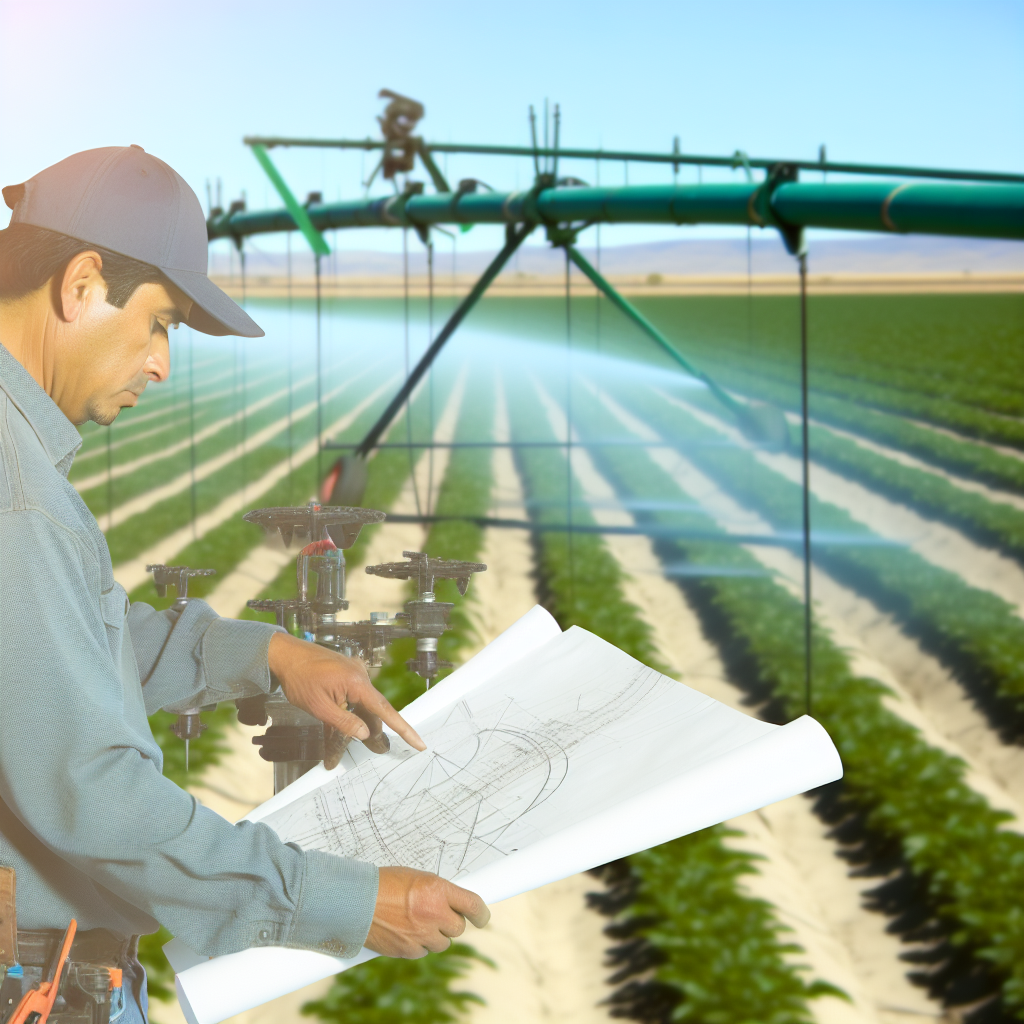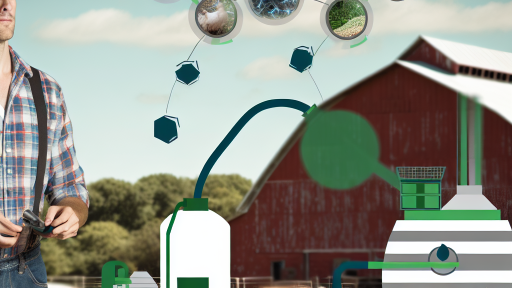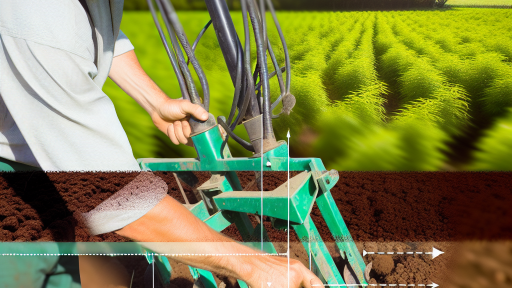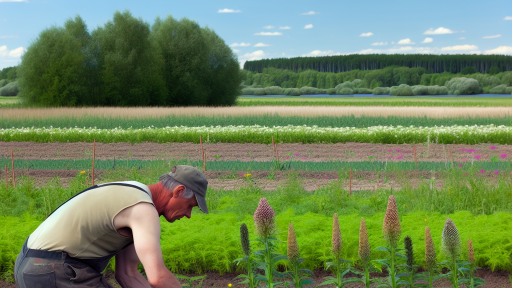Introduction to Efficient Irrigation Systems
Irrigation plays a critical role in sustainable farm designs.
It directly impacts crop yield and resource management.
Efficient irrigation systems reduce water usage significantly.
These systems help farmers save costs and maintain productivity.
They also minimize environmental impact by conserving water resources.
Types of Efficient Irrigation Systems
Various types of irrigation systems are available for sustainable farming.
Drip irrigation delivers water directly to plant roots.
This method reduces evaporation and runoff.
Sprinkler systems offer another efficient option.
These systems mimic natural rainfall and can cover large areas.
Subsurface irrigation can also be effective.
Water is applied below the soil surface, reducing evaporation.
Benefits of Precision Irrigation
Precision irrigation systems enhance water management practices.
They use technology to optimize water usage based on specific plant needs.
This approach improves crop health and resilience.
Transform Your Agribusiness
Unlock your farm's potential with expert advice tailored to your needs. Get actionable steps that drive real results.
Get StartedAdditionally, precision systems lower labor costs through automation.
Farmers can make data-driven decisions for better resource allocation.
Strategies for Implementing Efficient Irrigation
Adopting efficient irrigation systems requires careful planning.
First, assess the farm’s specific water needs.
This step helps in selecting the best irrigation method.
Next, analyze soil types and weather patterns.
These factors influence irrigation choices and scheduling.
Lastly, consider integrating technology for real-time monitoring.
Using sensors can optimize water application consistency.
Case Studies of Successful Implementation
Many farms have successfully transitioned to efficient irrigation systems.
For instance, Greenfields Farm adopted drip irrigation last year.
This change reduced their water use by 30%.
Moreover, they observed a 20% increase in crop yield.
Another example is Maple Grove, which uses precision irrigation.
Their system has enhanced overall farm productivity by 25%.
Types of Irrigation Systems
Drip Irrigation
Drip irrigation delivers water directly to the roots of plants.
This system minimizes evaporation and runoff, enhancing efficiency.
It uses a network of tubing and emitters to control water flow.
Farmers can install drip systems in various field sizes.
Additionally, drip irrigation is suitable for greenhouse applications.
This technique reduces water usage by 30-50% compared to traditional methods.
Environmental impacts are minimal due to reduced runoff and water waste.
Sprinkler Irrigation
Sprinkler irrigation distributes water through a system of pipes and pumps.
This method simulates natural rainfall, benefiting a wide range of crops.
Showcase Your Farming Business
Publish your professional farming services profile on our blog for a one-time fee of $200 and reach a dedicated audience of farmers and agribusiness owners.
Publish Your ProfileIt is highly adaptable to different landscapes and soil types.
Farmers can configure systems to cover large areas effectively.
Additionally, sprinkler systems work well in uneven terrain.
Some systems incorporate timers for efficient water management.
Surface Irrigation
Surface irrigation relies on gravity to distribute water across fields.
This classic method is simple and cost-effective for many farmers.
Water flows over soil surfaces to reach crop roots directly.
It works best on flat or gently sloping land.
For successful surface irrigation, adequate soil moisture levels are essential.
Farmers need to carefully manage water timing to reduce waste.
Comparison of Irrigation Systems
Each irrigation system offers unique advantages and challenges.
Drip irrigation excels in water conservation and precision.
Sprinkler irrigation provides flexibility and coverage over large areas.
Surface irrigation requires lower initial investment but needs careful management.
Choosing the right system depends on crop type, soil conditions, and resources.
Benefits of Efficient Irrigation for Sustainable Farming
Water Conservation
Efficient irrigation systems significantly reduce water waste.
This conservation effort helps protect vital water resources.
As a result, sustainable practices prevent water scarcity.
Increased Crop Yields
Implementing efficient irrigation leads to better crop production.
Crops receive consistent moisture, which aids growth.
Consequently, farmers enjoy higher returns on their investments.
Reduced Labor Costs
Automated irrigation systems decrease manual labor needs.
This reduction frees up time for other tasks.
Moreover, farmers can manage their fields more effectively.
Environmental Benefits
Efficient irrigation minimizes runoff and erosion.
This practice maintains soil health and fertility.
Additionally, it supports local ecosystems by conserving water.
Cost Savings
Investing in efficient irrigation lowers overall water bills.
Farmers can allocate resources to other important areas.
Overall, this leads to stronger financial sustainability.
You Might Also Like: Conservation Tillage Advantages For Modern Farmers
Technological Advances in Irrigation
Automation in Irrigation Systems
Recent advances in automation enhance irrigation efficiency significantly.
Automated systems can distribute water according to real-time needs.
They reduce water waste and increase crop yield potential.
Farmers can control these systems remotely using smartphones.
This convenience improves resource management and reduces labor tasks.
Smart Sensors for Precision Irrigation
Smart sensors play a crucial role in modern irrigation designs.
These devices monitor soil moisture and temperature continuously.
They provide real-time data to optimize watering schedules.
Consequently, farmers can make informed decisions about irrigation timing.
Showcase Your Farming Business
Publish your professional farming services profile on our blog for a one-time fee of $200 and reach a dedicated audience of farmers and agribusiness owners.
Publish Your ProfileThis technology minimizes over or under-watering risks effectively.
Benefits of Automated and Smart Systems
Implementing automated irrigation systems offers numerous advantages.
- Increased water conservation through accurate measurements.
- Improved crop health due to timely watering.
- Labor savings by reducing manual intervention.
- Cost savings on water use and energy consumption.
As a result, sustainable farming practices become more attainable.
Future Trends in Irrigation Technology
Future irrigation technologies will likely focus on further efficiency gains.
Integration with renewable energy sources will become common.
Innovations in data analytics will enhance decision-making processes.
Farmers will embrace machine learning to predict water needs accurately.
Ultimately, these advances will contribute to resilient agricultural systems.
Find Out More: Mulching Strategies to Save Water on Farms
Water Conservation Techniques in Irrigation Systems
Importance of Water Conservation
Water conservation is essential in agriculture today.
It helps ensure water availability for future generations.
Moreover, it reduces operational costs for farmers.
Efficient Irrigation Methods
Drip irrigation delivers water directly to plant roots.
This method minimizes evaporation and runoff.
Additionally, it conserves approximately 30-50% more water than traditional systems.
Advantages of Drip Irrigation
Drip systems promote healthy plant growth.
They also prevent weed growth by limiting water in unwanted areas.
Farmers notice increased yield quality and quantity.
Soil Moisture Management
Monitoring soil moisture is crucial for efficient irrigation.
Using moisture sensors can optimize water application.
Farmers can save both water and money through this technology.
Types of Soil Moisture Sensors
- Capacitance sensors measure the volumetric water content.
- Tensiometers track soil tension and inform irrigation scheduling.
Crop Selection for Water Efficiency
Choosing drought-resistant crops is vital for water conservation.
Such crops require less water and can thrive in arid conditions.
Examples include quinoa, millets, and certain legumes.
Reusing Water in Agriculture
Farmers can recycle water from various sources.
Rainwater harvesting is an effective technique for irrigation.
Moreover, treating graywater for irrigation can further save resources.
Implementing Rainwater Harvesting
Building storage systems captures rainwater efficiently.
Farmers can use this water during dry periods.
Such systems help reduce dependency on groundwater sources.
Education and Training
Providing farmers with training is crucial for implementing these techniques.
Workshops can cover efficient irrigation methods and water conservation.
Additionally, farmers should have access to the latest technologies.
Community Engagement
Involving the community can enhance water conservation efforts.
Farmers can share knowledge and strategies with one another.
This collaboration fosters sustainable farming practices.
See Related Content: Best Practices for Agricultural Waste Recycling

Case Studies of Successful Sustainable Farm Designs with Efficient Irrigation
Organic Valley Farms
Organic Valley Farms exemplifies innovative irrigation systems in sustainable agriculture.
The farm uses a combination of drip irrigation and rainwater harvesting.
This method significantly reduces water wastage while maximizing crop yield.
Showcase Your Farming Business
Publish your professional farming services profile on our blog for a one-time fee of $200 and reach a dedicated audience of farmers and agribusiness owners.
Publish Your ProfileConsequently, Organic Valley succeeds in maintaining soil moisture levels efficiently.
Green Acres Cooperative
Green Acres Cooperative employs smart irrigation technology for optimal water use.
They utilize soil moisture sensors to monitor field conditions.
This data-driven approach enables precise irrigation scheduling.
As a result, the cooperative achieves remarkable water conservation rates.
Sunny Grove Farm
Sunny Grove Farm integrates contour farming with efficient irrigation practices.
This sustainable design minimizes runoff and maximizes water retention.
Additionally, the farm utilizes a rain garden to filter excess water.
These techniques foster a healthier ecosystem while supporting crop productivity.
Harmony Farms
Harmony Farms focuses on sustainable practices for reducing carbon footprints.
They implement multi-layered irrigation systems, combining surface and subsurface methods.
This system adapts to varying soil types for optimizing water delivery.
Consequently, the farm has increased resilience against climate variations.
AgriTech Innovations
AgriTech Innovations showcases the role of technology in sustainable farming.
They have developed an automated irrigation management system.
This system uses real-time weather data to adjust water usage efficiently.
It has led to a significant reduction in operating costs.
Efficiency and Sustainability in Irrigation
Each of these farms demonstrates the importance of efficient irrigation.
They highlight how sustainable practices enhance both productivity and environmental stewardship.
Innovative irrigation solutions are key to successful farming.
Find Out More: Eco-Friendly Farm Design Principles For Modern Farmers
Challenges and Solutions in Implementing Efficient Irrigation
Identifying Common Challenges
Farmers often face significant challenges in establishing efficient irrigation systems.
Water scarcity remains a persistent issue across many regions.
Additionally, limited financial resources hamper the adoption of advanced technologies.
Climate variability further complicates irrigation management practices.
Moreover, inadequate infrastructure can restrict access to water sources.
Addressing Water Scarcity
Implementing rainwater harvesting can greatly alleviate water scarcity.
This technique captures and stores rainwater for future use.
Another effective solution is to use drought-resistant crop varieties.
These crops require less water and adapt well to arid conditions.
Overcoming Financial Barriers
Grants and subsidies can help farmers manage costs effectively.
Working with local governments can facilitate access to financial assistance.
Moreover, cooperatives can pool resources to invest in irrigation technologies.
This collective approach enhances affordability for small-scale farmers.
Mitigating Climate Variability
Using weather forecasting tools allows farmers to plan irrigation schedules better.
Integrating soil moisture sensors helps ensure optimal water usage.
Additionally, adopting precision agriculture techniques improves resource management.
These strategies facilitate better adaptability to changing weather patterns.
Improving Infrastructure
Investing in infrastructure upgrades is crucial for efficient irrigation systems.
Constructing canals and reservoirs can improve water distribution.
Showcase Your Farming Business
Publish your professional farming services profile on our blog for a one-time fee of $200 and reach a dedicated audience of farmers and agribusiness owners.
Publish Your ProfileFurthermore, routine maintenance of irrigation systems prevents water loss.
This proactive approach enhances overall efficiency and effectiveness.
Community Engagement and Education
Facilitating community workshops can enhance knowledge about efficient practices.
Shared learning experiences empower farmers to adopt new techniques.
Building networks among farmers fosters collaboration and resource sharing.
Furthermore, engaging with agricultural experts brings valuable insights.
Future Trends in Irrigation Systems and Sustainable Agriculture
Advancements in Technology
Recent innovations drive the evolution of irrigation systems.
Smart technology improves water management significantly.
Farmers can now use sensors to monitor soil moisture levels.
This technology allows for precise irrigation scheduling.
Moreover, data analytics enhances decision-making processes.
Farmers can optimize water usage and reduce waste effectively.
Emerging Sustainable Practices
Integrating drought-resistant crops forms a core trend.
These crops help minimize water consumption.
Additionally, farmers adopt rainwater harvesting techniques.
This rainwater can supplement traditional irrigation sources.
Furthermore, organic farming practices enhance soil health.
Healthy soil retains moisture better and supports crop growth.
Policy and Regulation Updates
Governments worldwide are establishing stricter water usage regulations.
These policies encourage sustainable irrigation practices.
They promote the adoption of efficient technology in agriculture.
In addition, subsidies for water-efficient systems are becoming common.
Farmers benefit financially while adhering to ecological standards.
Community Engagement and Education
Raising awareness about sustainable irrigation is crucial.
Community workshops educate farmers on best practices.
These workshops foster collaboration and knowledge sharing.
Furthermore, academic institutions are researching innovative solutions.
They contribute valuable information to improve irrigation techniques.
Global Collaboration and Research
International partnerships are vital for advancing irrigation systems.
These collaborations focus on sharing cutting-edge practices.
They help address global water scarcity issues collectively.
Moreover, research efforts target climate-resilient agricultural methods.
Such initiatives aim to secure food production in changing climates.
Ultimately, global cooperation enhances sustainable farming efforts.
Additional Resources
Irrigation & Water Use – USDA ERS
Irrigation and Water Management | Natural Resources Conservation …




